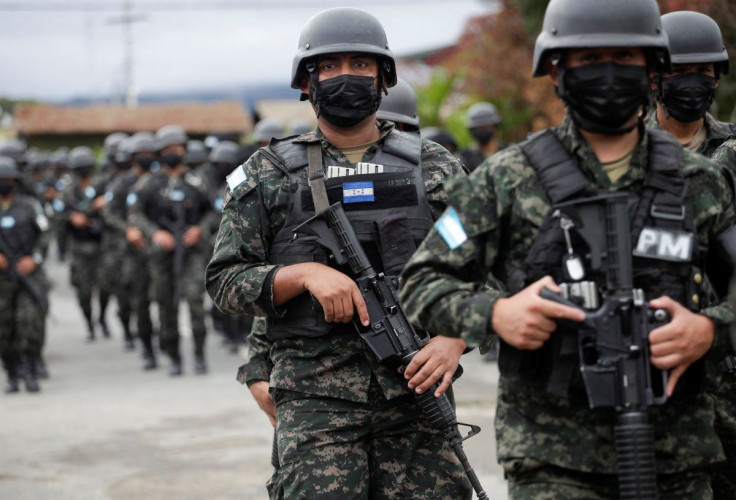When a decree took effect Monday, Honduras became the second nation in Central America to impose a state of exception suspending some of the constitutional rights to help combat street gangs.
The extraordinary measures target not only the capital Tegucigalpa, but also the northern business hub of San Pedro Sula, reported the Associated Press. They have both struggled under the sway of powerful gangs like MS-13 and Barrio 18. Thousands of security forces have been deployed to 162 gang-infested neighborhoods in San Pedro Sula and Tegucigalpa, reported The Guardian.
The decree by President Xiomara Castro’s government will last one month, but lawmakers will have the ability to extend it. It is something that has happened many times in El Salvador since a state of exception was imposed in March.
The measures taken by the Honduran government affect constitutional rights of association, arrests, searches and free movement. The measures would not only try to stop crime from happening, but would also carry repressive actions, said Retired National Police Commissioner Leandro Osorio. He added that the intent is to "penetrate these criminal structures to get to the (leaders)." He noted that it would also be important to go after lesser criminals and repeat offenders.
So far, Honduras’ state of exception pales in comparison to the all-out effort in El Salvador, said security analyst Raúl Pineda Alvarado. In El Salvador, President Nayib Bukele has faced criticism from across the globe for repressive tactics. Alvarado noted that El Salvador’s example was indeed “authoritarian,” but he said that it was showing real results in terms of the drop in homicides.
Castro previously said that extortion is one of the main causes of "insecurity, migration, displacement, loss of freedom, violent deaths and the closure of small and medium-sized businesses." He added that with the comprehensive strategy that was announced recently by the national police, his government of "democratic socialism declares war on extortion.”
Human rights activists are concerned that the partial suspension of constitutional rights could result in the kinds of abuses that allegedly took place in El Salvador. It included arbitrary detentions of innocent people, excessive use of torture and force.
Ismael Moreno, a leading human rights activist in Honduras, said that instead of "generating positive expectations, it generates enormous worry." He fears that the government will find popular support, and "that is very worrying because we can move towards regimes like the one in El Salvador or others that are sustained by force, that are sustained by threats and by the irresponsible application of the law."

© 2025 Latin Times. All rights reserved. Do not reproduce without permission.





